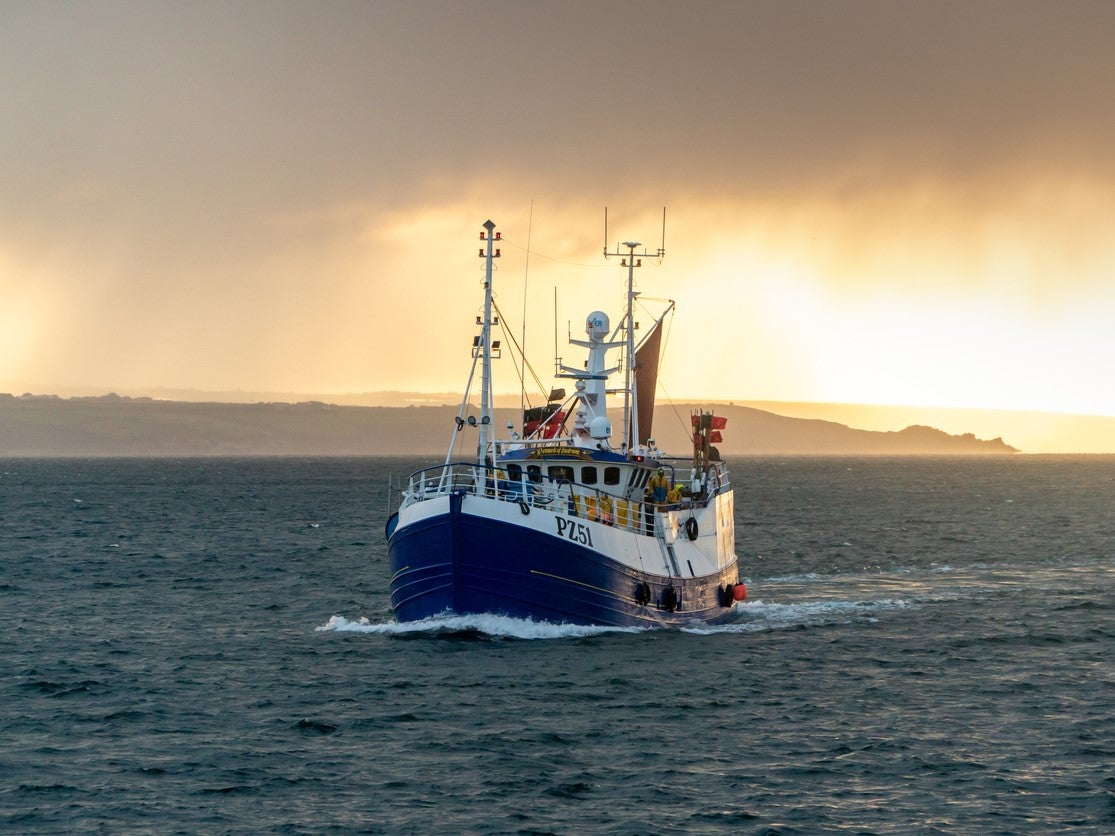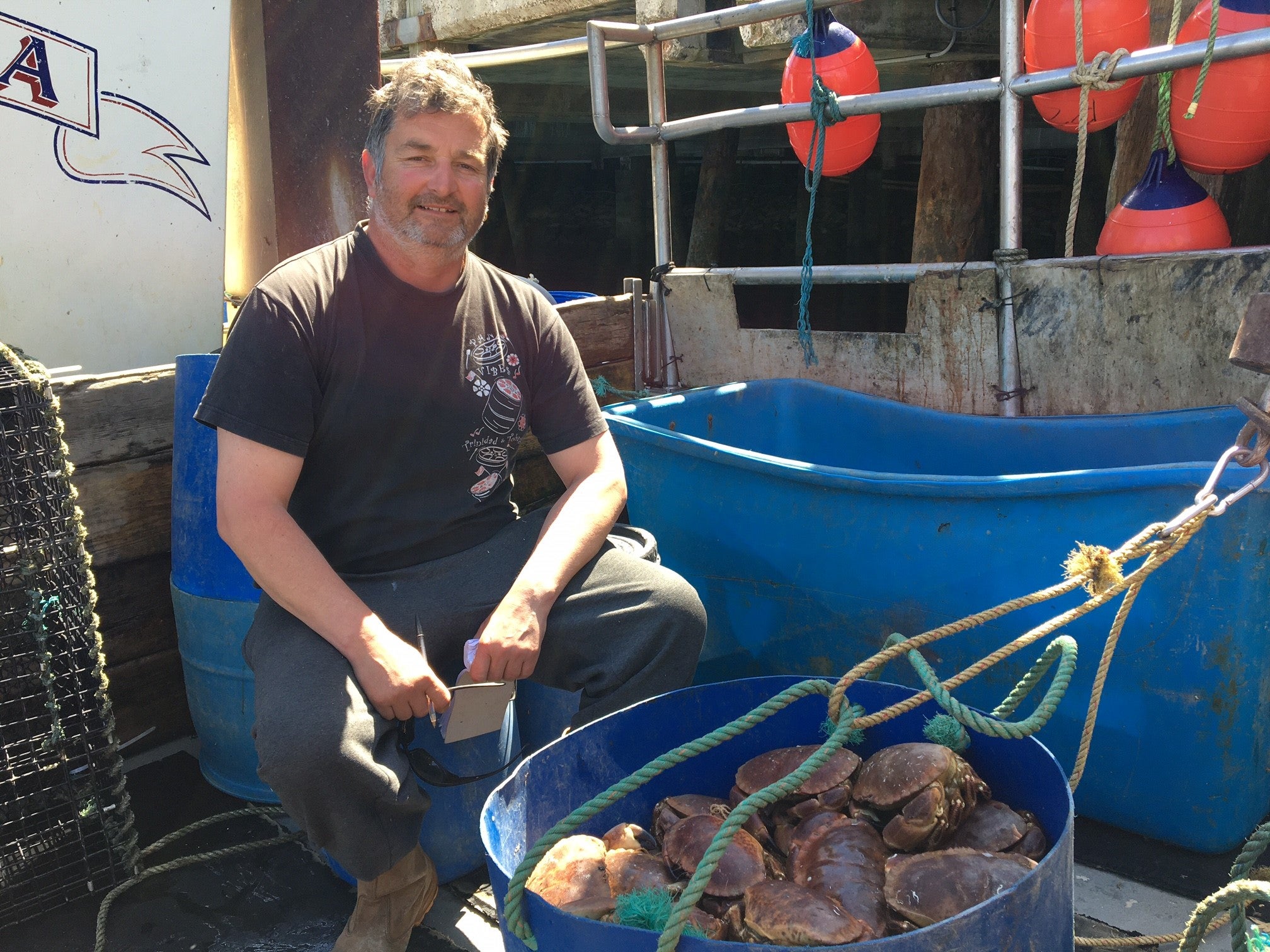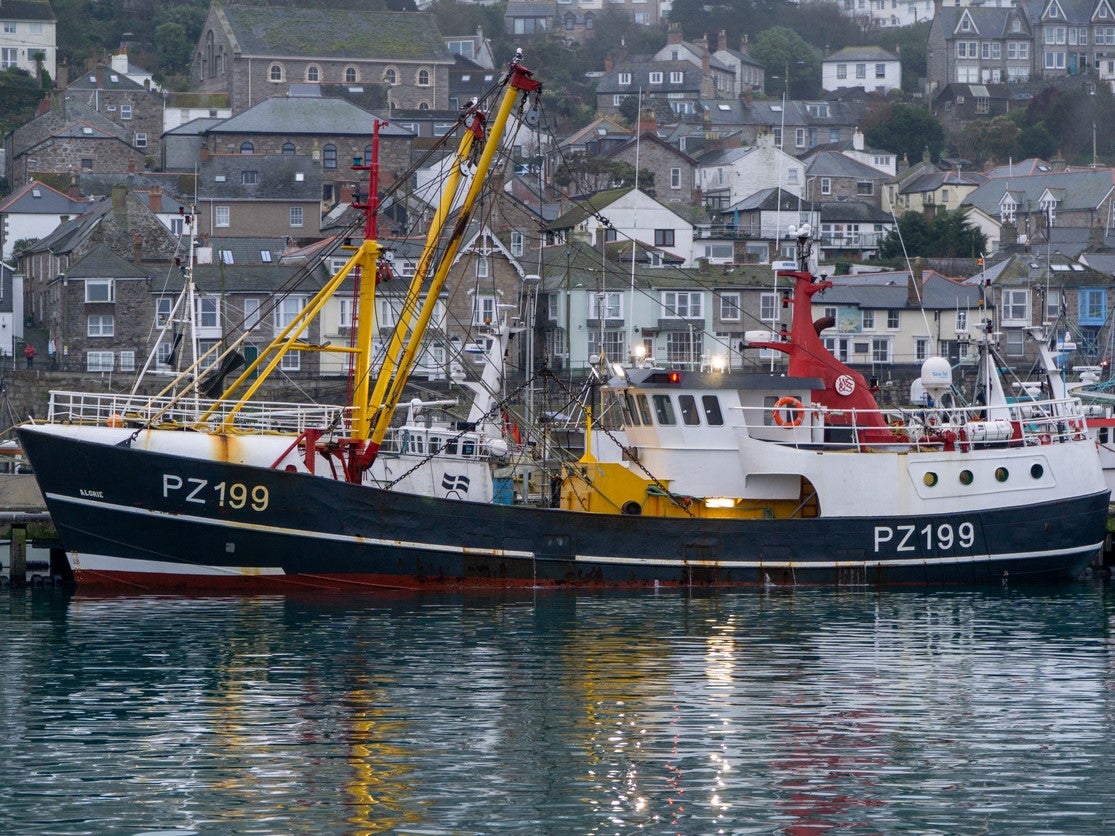‘Stitched up and sold out’: UK’s fishing crews outraged at Brexit betrayal five years after referendum
On the fifth anniversary of the vote to leave the EU, many in the fishing industry feel betrayed by a trade deal that effectively sacrificed one of the key promises of the Leave campaign

Your support helps us to tell the story
From reproductive rights to climate change to Big Tech, The Independent is on the ground when the story is developing. Whether it's investigating the financials of Elon Musk's pro-Trump PAC or producing our latest documentary, 'The A Word', which shines a light on the American women fighting for reproductive rights, we know how important it is to parse out the facts from the messaging.
At such a critical moment in US history, we need reporters on the ground. Your donation allows us to keep sending journalists to speak to both sides of the story.
The Independent is trusted by Americans across the entire political spectrum. And unlike many other quality news outlets, we choose not to lock Americans out of our reporting and analysis with paywalls. We believe quality journalism should be available to everyone, paid for by those who can afford it.
Your support makes all the difference.It’s 5am on a brisk June morning and on board the Girl Pamela fishing vessel, skipper Graham Nicholas is taking The Independent through some basic housekeeping ahead of a 12-hour stint at sea.
“If you need to piss or puke,” he says, “do it overboard. If you need to shit, do it in the bucket.”
Later, as we head out of Newlyn Harbour in Cornwall, he will recommend being aware of lines as they get thrown out to sea. “If one catches you, it can take off a limb,” he notes matter of factly.
Fishing has long been known as a hard, oft-uncomfortable way to graft a living. Now fishers across the UK say their trade has been made even more difficult – by Boris Johnson’s Brexit deal.
On the fifth anniversary of the vote to leave the EU, many say their industry has been betrayed by an agreement that has effectively sacrificed one of the key promises of the Leave campaign – to keep European trawlers out of British waters – while simultaneously ending frictionless access to continental markets.
“I voted [Tory] at the last election to get Brexit done, and they’ve sold us down the f*****g river,” Nicholas spits as we gun out into the Western English Channel. “I’d never vote again except they say you can’t moan if you don’t vote – and I’ll admit I like a good moan.”
Above all, he has one outstanding question. As Brexit negotiations faltered over fishing rights last year, there was a chorus of voices – both within and outside government – urging the prime minister not to sacrifice a wider trade deal because of the demands of an industry that makes up just 0.1 per cent of the UK’s economy.
“But if we’re so unimportant, how comes the Europeans fought so f****g hard for their fishermen?” asks the 51-year-old who has been working the waters since he was 16. “We got stitched up. Fishing was used to win Brexit and then we got sold out.”

During a day on board the Girl Pamela – a relatively small four-hand, 37-foot vessel – it is easier to understand this coursing anger than it might be from, say, an office in Downing Street.
What happens on this boat isn’t just hard work, it’s dangerous, unpredictable and all-consuming. And here, off the Cornish coast where the vast majority of the region’s fleet are similar lightweight affairs, it is made all the more difficult by having to compete with industrialised vessels steaming in every day from other lands.
The idea was Brexit would fix this last issue.
I voted Tory at the last election to get Brexit done, and they’ve sold us down the f*****g river
Since the creation of the EEC, forerunner to the EU, boats from Europe have been allowed to fish up to six miles off Britain’s shore. Under Leave promises, the exclusion zone was to be extended to the territorial line of 12 miles – a guarantee that, above and beyond coastal communities, somehow came to have a wider resonance as a symbol of the UK taking back control.
Yet, when the new deal was signed in January, the exclusion area remained at just six miles. Overseas trawlers are still allowed to plough into British waters, just as they have been for decades. Reciprocal rights exist, it should be said, but certainly off Britain’s south coast, far fewer British vessels – beyond a few scallopers – ever bother going into the less bountiful French waters.
“Answer me this,” demands Nicholas. “Would we let French farmers come over here and take over land that belonged to British farmers? Of course we wouldn’t. Why’s our water any different?”
He himself specialises in crab and lobster. Each time he goes out, he drops around 400 pots onto the seabed and pulls up another 400 that he left last time – which, fingers crossed, come to the surface filled with crustaceans. He does this, he says, just inside the six-mile point.
But, repeatedly over the past 10 years, foreign trawlers have nipped inside those limits, dragging the seabed with industrial nets and, in so doing, destroyed his equipment. “That’s £100 a pot and, one time, 40 of them gone,” he says. “You go out hoping for a good catch and come back with £4,000 worth of pots f****d. And there’s nothing I can do about that. I have to suck it up.”
His fear now is that, far from heralding the promised new dawn for coastal communities, January’s deal will drive a final nail into a sector that has long struggled to attract young workers.
He himself comes from a long lineage of Cornish fishers. His father, grandfather and great-grandfather all worked these same waters. But he will probably be the last of the line. None of his four children have shown any inclination for the trade. “They know how hard it is,” he says. Pertinently, Brexit means youngsters don’t “see a government willing to support [the industry]”.

Downing Street, for its part, says it has fought hard for fishing.
The new deal, ministers point out, gives British boats a (slightly) greater share of fish that can be caught in international seas and, while it allows European boats into the UK’s waters, this is only until 2026 when the issue will be reconsidered. It has also created a Fisheries and Seafood Scheme offering cash grants for businesses across the sector to invest in new equipment (“Shut-the-f**k-up money,” as Nicholas calls it.)
But in Newlyn – the UK’s biggest port in terms of fisher numbers – such arguments cut little mustard.
“Fishing was used as a poster boy for the whole Brexit project and then, when it came to the final analysis, it was basically sacrificed to secure a trade deal,” says Paul Trebilcock, chief executive of the Cornish Fish Producers Organisation, representing 170 boats across the county. “For the government to say this is a good result, it’s derisory.
“What people voted for was for the UK to act like an independent coastal state again. That has not been delivered. This motto, take back control. We haven’t even taken back control of our own waters.”
The result, he says, will be increasingly depleted seas around the British Isles. “This was an opportunity to put sustainable fishing at the heart of the industry and secure its future,” adds Trebilcock, who himself comes from a long line of fishers. “The anger is because that simply hasn’t happened.”
What people voted for was for the UK to act like an independent coastal state again. That has not been delivered
Fishing, of course, is not a homogeneous industry.
The concerns of Newlyn’s fleet differ greatly to those, for instance, of shellfishers in Peterhead. Two- or three-hand boats putting out from ports like Brixham and Milford Haven have little in common with industrial deep-water trawlers, capable of netting and freezing hundreds of tons of fish on a single trip from bases such as Hull and Aberdeen.
Yet January’s deal appears to have had the almost unique result of uniting the entire industry in anguish. Pretty much every sub-sector has found itself facing issues.
Beyond Cornish concerns about over access to British waters, shellfishers from across the UK have now been banned from selling to EU member states, meaning almost certain ruin for some smaller boats, while deep-water vessels can no longer head into the rich waters of the Norwegian economic zone as they could when the UK was part of the EU – resulting in longer less profitable trips into Arctic waters.
“Fishers from Penzance to Peterhead are out of work and angry,” said Emma Hardy, the Labour MP for Hull West and Hessle, during a Commons debate earlier this month. “They have been badly let down and they have every reason and every right to ask why.”
Indeed, it is precisely this question – why? – that, back on the Girl Pamela, Nicholas keeps coming back to. His own answer is as simple as it is brutal. “We’re an island nation and people have this romantic idea of fishing,” he says. “But when it comes down to it, no one really cares where their fish and chips come from.”
As things have got steadily harder down the years, has he ever thought about giving it all up for a job on land? A shake of his head and a look that implies the question is madness. He references something we’ve seen earlier that day: a thresher shark – imperial and unbothered by the boat – repeatedly leaping from the water just metres away from us.
“I love the sea too much,” he says. “What else would I want to do?”
Join our commenting forum
Join thought-provoking conversations, follow other Independent readers and see their replies
Comments